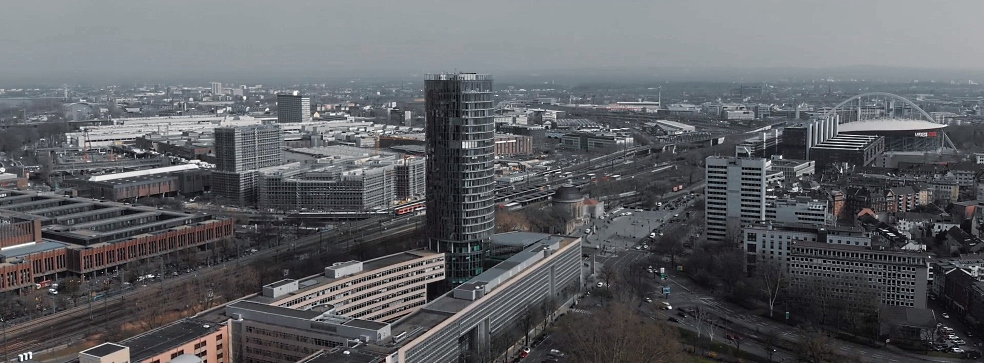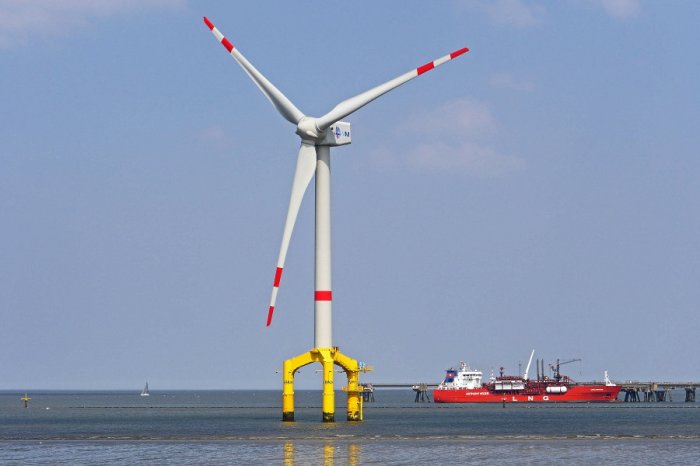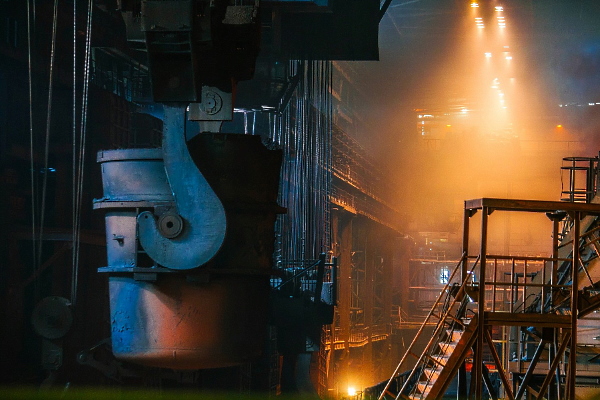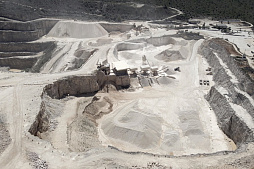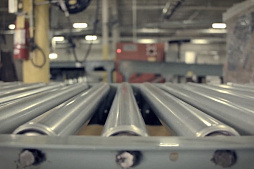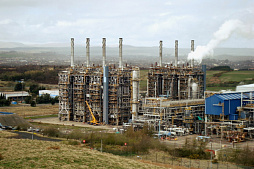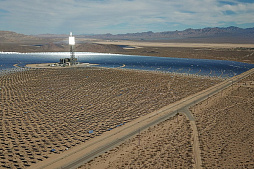To consider an application for financing, fill out the form and send it to us by e-mail along with the project brief, or contact our experts
It ranks third in the world after China and the USA.
In Germany, chemistry is one of the most important sectors of the economy, responsible for a turnover of almost 190 billion euros and employing more than 460,000 people.
Investments in the German chemical industry in 2020 amounted to about 8.5 billion euros.
Significant sources of financing of the sector are long-term bank loans, mainly received from commercial banks.
A brief overview of the German chemical industry
Chemical industry is characterized by a high technical level and a wide variety of products, which includes basic chemical products, chemical fibers, drugs, cosmetics, adhesives, fertilizers and much more.About 70% of the industry's output consists of chemical raw materials and semi-finished products, which are further used in industry. The chemical industry is closely linked to almost all sectors of the German economy and is an integral part of many value chains such as automotive industry, fuel industry, shipbuilding and construction.
As of 2020, the chemical and pharmaceutical industry, which is the third largest industry in Germany, accounted for almost 11% of industrial sales in the country.
Chemical & pharmaceutical enterprises accounted for more than 12% of investments in fixed capital of manufacturing sector.
One of the features of the German chemical sector is its deep penetration into foreign markets. In 2019, a significant part of the profits are received by foreign enterprises, where more than 400 thousand employees worked, producing chemicals worth 210 billion euros.
Table: Investments in tangible assets of the chemical-pharmaceutical companies
| Year | Domestic investments, billions of euros | Foreign investments, billions of euros |
| 2000 | 6.80 | 6.70 |
| 2001 | 6.57 | 7.06 |
| 2002 | 6.46 | 5.79 |
| 2003 | 6.09 | 5.06 |
| 2004 | 5.20 | 4.73 |
| 2005 | 5.39 | 5.16 |
| 2006 | 6.15 | 5.72 |
| 2007 | 6.43 | 6.12 |
| 2008 | 7.10 | 6.30 |
| 2009 | 6.11 | 5.38 |
| 2010 | 5.80 | 5.47 |
| 2011 | 6.25 | 6.18 |
| 2012 | 6.25 | 7.72 |
| 2013 | 6.90 | 8.14 |
| 2014 | 7.15 | 8.47 |
| 2015 | 7.14 | 8.60 |
| 2016 | 7.04 | 7.90 |
| 2017 | 7.37 | 8.08 |
| 2018 | 7.84 | 8.78 |
| 2019 | 8.15 | 9.47 |
| 2020 | 8.50 | 8.99 |
| 2021 | 8.62 | 9.40 |
The largest companies of the chemical and pharmaceutical industry in Germany today include BASF SE, Bayer AG, Fresenius SE & Co, Boehringer Ingelheim, Henkel AG & Co, Merck KGaA, Evonik Industries AG, Covestro AG, B. Braun SE, Beiersdorf AG and others.
Table: The largest German chemical companies by turnover in 2020.
| Companies | Turnover, billions of euros | Companies | Turnover, billions of euros |
| BASF SE | 59.15 | Lanxess AG | 6.10 |
| Bayer AG | 41.40 | Wacker Chemie AG | 4.69 |
| Fresenius SE & Co. KGaA | 36.28 | K+S AG | 3.70 |
| Boehringer Ingelheim | 19.56 | Symrise AG | 3.52 |
| Henkel AG & Co. KGaA | 19.25 | Stada Arzneimittel AG | 3.01 |
| Merck KGaA | 17.53 | Paul Hartmann AG | 2.43 |
| Evonik Industries AG | 12.20 | Fuchs Petrolub SE | 2.38 |
| Covestro AG | 10.71 | Altana AG | 2.18 |
| B. Braun SE | 7.42 | Westfalen AG | 1.59 |
| Beiersdorf AG | 7.03 | DAW SE | 1.38 |
Global corporations listed on the Deutscher Aktienindex (DAX) dominate public perception, while in reality most of Germany's 2,100 chemical companies are small and medium-sized businesses.

More than 90% of chemical companies have fewer than 500 employees, but they account for more than 25% of the industry's turnover.
Among other things, workers in the German chemical & pharmaceutical industry have high earnings exceeding 62,000 euros per year, which is a quarter more than the average annual salary in the manufacturing industry.
Investment trends in the German chemical industry
In the 1990s, the key indicators of the German chemical industry looked somewhat worse compared to other traditionally attractive sectors of the "old industry".Since 2010, the pace of investment and fixed capital accumulation in the German chemical industry has accelerated markedly, and key indicators have matched and even surpassed other industries. This is largely due to the effective reorganization and modernization of the chemical plants of East Germany, which were inherited by a single country after the collapse of the GDR.
The strong development of basic chemical production required huge investments and long-term loans, and the problem of financing was successfully solved by the combined efforts of the government and German business.
An assessment by the Cologne Institute for Economic Research (IW) shows that real investment activity in the chemical industry is still growing more slowly compared to other industrial sectors. The reasons for this are weak market growth in Europe and a structural shift from basic chemistry to highly specialized chemical products, which means less funding for capital-intensive projects for the production of chemical raw materials.
In addition, high costs and investment barriers on the ground play an important role. In particular, high energy and fuel costs, strict building regulations and lengthy approval processes have slowed the increase in investment in the construction of new chemical plants in Germany. However, investment activity is likely to recover significantly in the coming years.
The transformation of the industry, taking into account the requirements of climate neutrality, requires large investments in basic chemical plants.
A serious risk for the future of the German chemical industry remains the dependence on imported natural gas, which has shown skyrocketing price growth in 2022.
The chemical and pharmaceutical industries are characterized by a global nature and a deeper penetration of foreign investment than any other industry. Through direct investment abroad, German companies benefit from higher market growth and more favorable local factors. Over the last decade, the international investments of German chemical companies have grown significantly. These investments are mainly aimed at opening and expanding new markets.
Companies with German investments are actively working in the USA, France, the Netherlands, Austria, Poland, Italy, Spain, China, Great Britain, Brazil, Chile, Japan, South Africa, Singapore, India, Indonesia, South Korea and a number of other countries.
The geography of the presence of German business is constantly expanding, including thanks to innovative technologies and the impeccable reputation of German chemical companies in the world markets.
Table: Direct investments of German chemical & pharmaceutical companies in 2020.
| # | Countries (in descending order) | DI, billions of euros |
| 1 | The United States | 34.46 |
| 2 | Netherlands | 13.58 |
| 3 | Canada | 3.19 |
| 4 | Spain | 2.73 |
| 5 | Belgium | 2.49 |
| 6 | Luxembourg | 2.43 |
| 7 | Brazil | 1.83 |
| 8 | Great Britain | 1.71 |
| 9 | Sweden | 0.77 |
| 10 | South Korea | 0.75 |
Although the main sales market for German chemical products remains Europe, companies are actively investing in new enterprises in North America and Asian countries.
Financing subsidiaries of German chemical and pharmaceutical companies abroad is extremely attractive for investors, as evidenced by the large share of foreign commercial banks.
The weaker development of investments in new chemical plants affected the capital of the chemical industry. Real net fixed assets serve as a measure of capital accumulation. According to IW, real net fixed assets in the German chemical industry fell by 13% between 2002 and 2018.
A slight decrease in fixed capital weakens the future growth potential of the industry and requires urgent intervention.
Table: Foreign direct investments in German chemical companies in 2020.
| # | Countries (in descending order) | DI, billions of euros |
| 1 | Netherlands | 3.17 |
| 2 | Great Britain | 1.45 |
| 3 | The United States | 1.16 |
| 4 | Japan | 1.13 |
| 5 | Belgium | 0.31 |
| 6 | Poland | 0.23 |
| 7 | Singapore | 0.10 |
Innovation is a necessary factor of differentiation and development in the global market of chemical products.
Almost 10% of all employees in the chemical industry in Germany work on research and development. The chemical and pharmaceutical industry spends more than 13 billion euros in R&D every year, making local projects very competitive and attractive for investment.
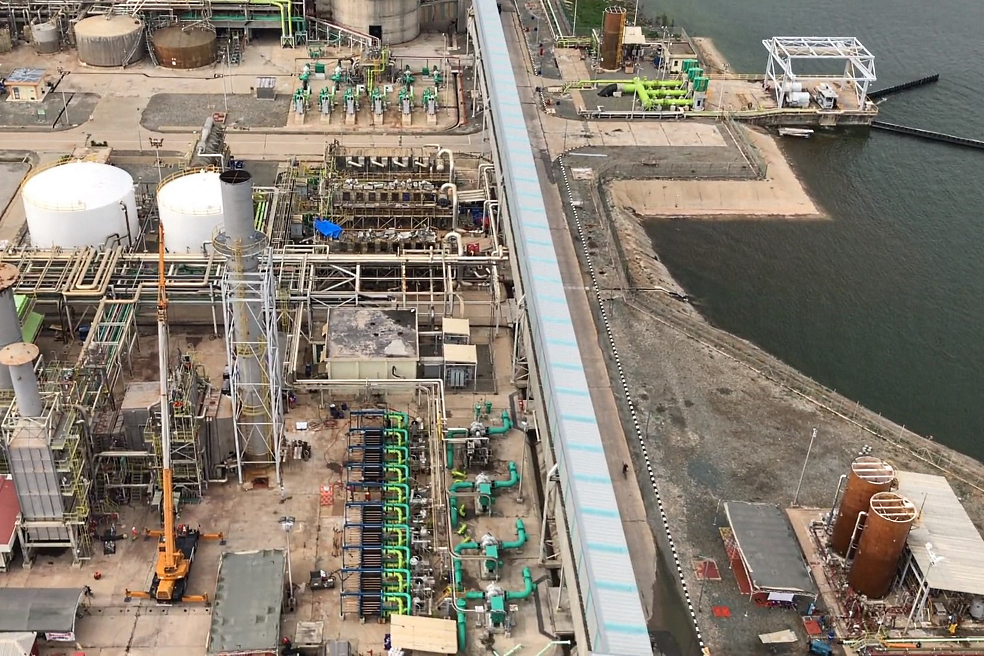
This represents about 15% of all R&D spending in German industry, making the chemical industry the 3rd largest R&D investment after the automotive and electronics industries. New materials, ideas and technologies are successfully translated and applied in many other sectors of the German economy.
Thanks to innovative products and engineering solutions, chemistry contributes to the success of the energy transition and climate protection.
Large loans for chemical plants in Germany on flexible terms
According to the latest Deutsche Bank research, the German industrial sector will soon suffer from crisis phenomena caused by the rise in the cost of natural gas and the consequences of the conflict between Russia and Ukraine. It was the next big economic shock after the pandemic, and the huge uncertainty and weak growth prospects will force chemical plants and other companies in the sector to increasingly turn to banks for short-term loans.Already in the fourth quarter of 2021, business financing needs have increased sharply due to energy prices and high costs to replenish depleted stocks.
In general, 2021 saw high growth in services sector loans (+6.7%), while lending to industry stagnated (-0.4%). However, the unstable situation will increase the financing needs of German industry, in particular, the volume of lending to chemical enterprises will most likely increase the most.
This industry remains extremely sensitive to energy prices, which creates serious risks in the current situation.
Link Bridge Financial LTDA is an international company specializing in large business financing and project financing. Our company has brought together professionals from Spain and other countries to provide all the advantages of advanced financial engineering technologies to its corporate clients.
We offer long-term investment loans for chemical plants in Germany and other European countries on flexible terms.
Our team is also ready to arrange a customized project finance scheme, financial model development, consulting and support.
If you are planning a large investment project in the chemical industry or related sectors, please contact our representative for details.



